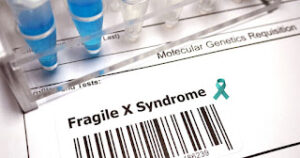Unveiling Fragile X Syndrome: Understanding, Symptoms, and Awareness
Fragile X syndrome stands as a genetic anomaly that affects individuals globally, influencing their cognitive, behavioral, and physical well-being. As July dawns upon us, it marks a significant period of recognition and advocacy known as Fragile X Awareness Month. In this article, we delve into the depths of Fragile X, shedding light on its intricacies, symptoms, and the pivotal importance of awareness.

Fragile X Syndrome Awareness Month |
What is Fragile X?
Fragile X syndrome is a genetic disorder stemming from a mutation in the FMR1 gene located on the X chromosome. This mutation hampers the production of a protein essential for normal brain development, leading to intellectual disabilities, behavioral challenges, and distinctive physical traits.
When is Fragile X Awareness Month?
Fragile X Awareness Month is observed throughout July, with July 22 earmarked specifically to honor individuals living with Fragile X syndrome. This dedicated period serves as a beacon of support and advocacy, amplifying awareness about the condition’s impact on affected individuals and their families.
What is the Color for Fragile X Awareness Month?
Teal emerges as the emblematic color for Fragile X Awareness Month. Symbolizing resilience and solidarity, teal hues adorn awareness campaigns and events, fostering a sense of unity among communities affected by Fragile X syndrome.
Support Fragile X Awareness with our exclusive teal t-shirt. Show your solidarity for individuals and families affected by Fragile X syndrome this July 22.
 |
| Fragile X Syndrome Awareness Month 2024 |
Symptoms of Fragile X:
The manifestations of Fragile X syndrome vary in severity among affected individuals, but common symptoms include:
- Intellectual Disability: Fragile X often leads to cognitive impairments, affecting learning abilities and overall intellectual development.
- Behavioral Challenges: Individuals with Fragile X may exhibit behavioral issues such as anxiety, hyperactivity, impulsivity, and social difficulties.
- Physical Characteristics: Physical features associated with Fragile X syndrome may include long face, large ears, flat feet, and macroorchidism (enlarged testicles in males after puberty).
- Sensory Sensitivities: Sensory processing issues, such as sensitivity to light, sound, or touch, are common among those with Fragile X.
Diagnostic Criteria for Fragile X
Diagnosing Fragile X syndrome involves genetic testing to detect the FMR1 gene mutation. Key diagnostic criteria include:
- Clinical Assessment: A thorough evaluation of developmental milestones, behavioral patterns, and physical characteristics assists in identifying potential indicators of Fragile X syndrome.
- Genetic Testing: Molecular tests, such as DNA analysis via polymerase chain reaction (PCR), ascertain the presence of FMR1 gene mutations, confirming the diagnosis of Fragile X.
Conclusion
As we navigate through Fragile X Awareness Month, it’s imperative to foster understanding, empathy, and support for individuals and families affected by this complex genetic condition. By embracing the teal ribbon as a symbol of solidarity, we unite in our mission to advocate for research, resources, and interventions aimed at enhancing the quality of life for those living with Fragile X syndrome. Together, let us illuminate the path towards a more inclusive and compassionate society, where every individual, regardless of genetic makeup, is embraced with dignity and respect.